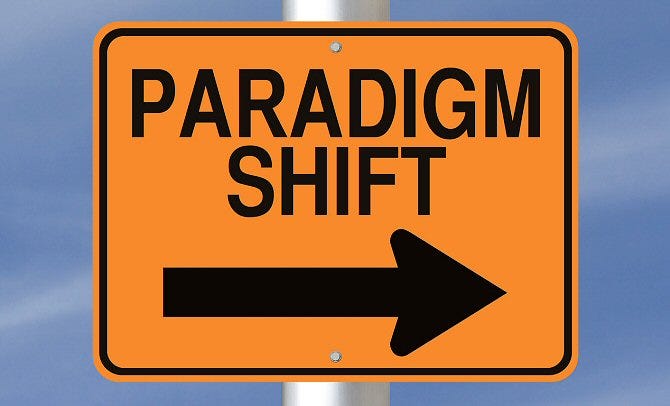Dual Perspectives
The power and weirdness of simultaneously holding two opposing viewpoints

I watched a couple episodes of Hoarders the other day, the documentary show about those people who refuse to throw things away and find themselves buried in trash, and found myself rather shocked. I didn’t know this psychological issue was so common. If I remember correctly, they claim that it affects 3 million people. That’s more than what the experts claim is the number of people in America addicted to cocaine. It’s strange that hoarding isn’t a criminal act, even though, judging from the show, it can destroy people’s lives and be a detriment to everyone around them, just like cocaine… well, okay, I guess it is a criminal act once it becomes ridiculous, but why do we not have a Partnership for a Hoarding Free America?
Anyway, the concept I was getting to relates to this one individual on the show: a 21 year old guy who lived with his alcoholic dad, both refusing to throw anything away. This kid had two interesting psychological hangups. The first was that he felt that every little thing was a memory that represented something spiritual. If someone bought him a soda, for example, he would feel like he was insulting that person if he threw away the can when he was done with it.
The other hangup was that he believed that his dog’s life was relying on the doghair that was accumulating on his floor. He truly believed that if he vacuumed up all that hair, his dog would die.
Normally when people have wacky spiritual perspectives, they tend to make excuses for them, come up with arguments to try and justify their logic or come up with distractions. This kid, however, seemed totally aware and willing to admit that he was crazy. He knew logically that there was no conceivable way vacuuming dog hair could be killing his dog, yet he truly believed it. It was like his emotional and logical brains were totally separate, yet still aware of each other. The normal logical cause and effect of the world held no sway over his beliefs, yet he clearly still had an understanding of that logic.
Dual perspectives. He truly believed that cleaning up was necessary and beneficial, and at the same time, truly believed the exact opposite.
Now, my belief is that this type of dual perspective is not nearly as uncommon or crazy as most people believe. The unique thing about this case is that the person recognized it.
But you can see the same kind of dual perspective in most religious individuals who say things like ‘only God can heal’ and ‘all things are possible with God’, but the moment they get sick they run to the doctor, searching for someone of science instead of faith.
It’s interesting, however, that the whole idea of dual perspectives is rarely used consciously. It seems like the idea could be used for balancing motivation with failure preparedness. If you have a difficult task, you want to be able to prepare for failure, but at the same time you want the confidence that comes from believing you can never fail. Why can’t you just believe both? One part of your brain prepares for failure while the other remains separated and totally confident of success. It’s an interesting idea that I’ve used over the years with varying success, but still it seems strange that it’s so difficult and rare to implement this consciously, when our subconscious minds seem riddled with it.
Originally published at kalinbooks.com. Thanks for reading. If you liked it, please click the heart and check out my books on Amazon.
